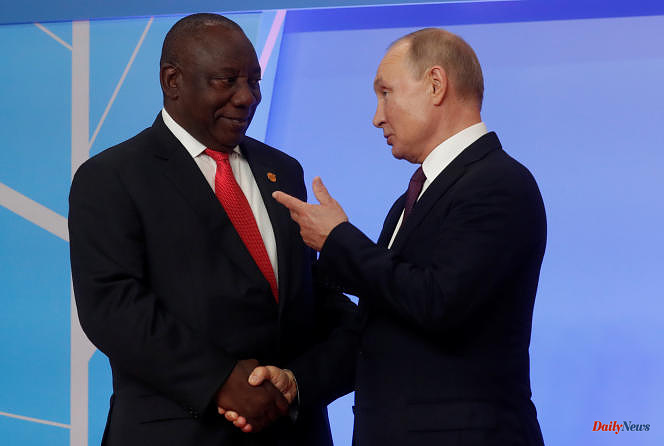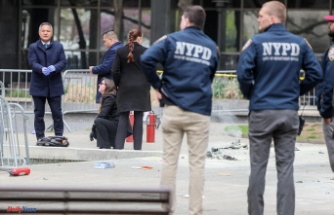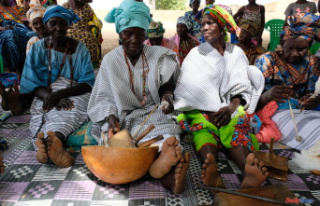Russia's top military general and his South African counterpart discussed "military cooperation" when they met in Moscow on Monday (May 15), the Russian Defense Ministry said. The announcement came hours after South African President Cyril Ramaphosa denied US accusations that his country was siding with Russia in the war in Ukraine and had sent weapons for the help.
General Oleg Salyukov, commander of the Russian ground forces, met with the head of the South African army, Lieutenant General Lawrence Mbatha, at the headquarters of the Russian general command in Moscow, the Russian ministry said.
"The two sides discussed issues of military cooperation and the implementation of projects aimed at improving the combat readiness of the armies of the two countries," the ministry said in a statement. The meeting between military commanders resulted in agreements regarding the development of cooperation between ground forces in various fields. The ministry said a South African delegation would visit a number of Russian military "educational and training" facilities.
Secret stopover
The South African military says the trip was planned long before the US ambassador to South Africa alleged last week that the country had supplied arms to Russia when a ship subject to US sanctions made a secret stopover at a South African naval base in December. The South African government has denied that the Russian freighter's stopover resulted in an official arms sale, although it has not ruled out outright that an arms deal took place.
Mr Ramaphosa said an investigation was underway to determine whether anyone had loaded weapons on board the Russian-flagged freighter Lady R at Simon's Town naval base near Cape Town.
Ramaphosa used his weekly message to the nation on Monday to reaffirm South Africa's non-aligned stance on Russia's invasion of Ukraine. The president's statement was seen as a response to US Ambassador Reuben Brigety, who had questioned South Africa's neutrality in the war in Ukraine while making allegations about an arms shipment. Mr Brigety was later called to a meeting with the South African foreign minister.
“Our position of non-alignment [does not] favor Russia over other countries [and should not] jeopardize our relations with other countries,” Mr. Ramaphosa wrote in his weekly message. We have been firm on this point: South Africa has not been, and will not be, drawn into a competition between world powers. »
Mr Ramaphosa also hinted that Russian President Vladimir Putin would travel to South Africa for a meeting of leaders of the BRICS economic bloc in August – something the Kremlin has not confirmed. Such a trip would drag South Africa into another diplomatic imbroglio, as the country is a signatory to the treaty that created the International Criminal Court (ICC), which in March issued an arrest warrant for Mr. Putin for alleged war crimes involving child abduction in Ukraine. Since then, Mr. Putin has traveled little, and only to countries that are close allies of Russia. Countries that are party to the treaty would be forced to arrest the Russian leader.
naval exercises
Although both Russia and South Africa described Monday's meeting as part of a normal bilateral trip, this encounter is sure to heighten the focus on Africa's most developed economy, considered an influential nation in the developing world. South Africa is the only African nation in the BRICS bloc, which also includes Brazil, Russia, India and China.
In addition to the weapons allegations, South Africa also hosted Russian and Chinese warships and took part in naval exercises off its east coast in February, which coincided with the first anniversary of the invasion of Ukraine by Russia.
Mr Brigety said last week that US officials respected South Africa's policy of neutrality and non-alignment in international affairs, but noted a series of problems which suggested that in practice , the South African government was not non-aligned.
The Associated Press (AP) has independently verified that the cargo ship Lady R stopped at the South African naval base for at least three days in December, as Mr Brigety claimed. A review of records by AP also shows that the Lady R is linked to a company that was sanctioned by the United States for transporting weapons on behalf of the Russian government and for aiding it in its war effort in Ukraine.












